L'un des moyens les plus sûrs d'obtenir le Viagra original est de l'acheter surPharmacie Francieen ligne.
Climate Change
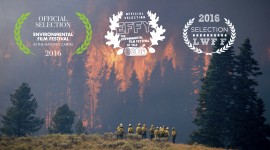
Unacceptable Risk – Firefighters on the Front Lines of Climate Change
“On a day-to-day basis, we’re being surprised. And in this business, surprise is what kills people.” So says Don Whittemore, a career firefighter who has battled many of Colorado’s epic fires over the past two decades. The Story Group recorded the experiences of Whittemore and other firefighters who are repeatedly responding to record-breaking wildfires. Human-caused […]
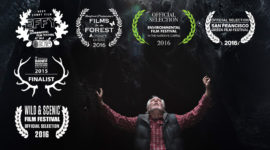
Moving the Giants – An Urgent Plan to Save the Planet
After premiering at Banff Mountain Film Festival in November, Moving the Giants is touring the film festival circuit well into 2019. The film profiles David Milarch, an arborist from central Michigan. In 1991, Milarch had a near death experience that inspired a personal quest – to archive the genetics of the world’s largest trees before […]
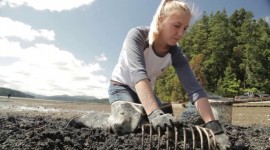
Oyster farmers and Ocean acidification
“The ocean is so acidic that it is dissolving the shells of our baby oysters,” says Diani Taylor of Taylor Shellfish Farms in Shelton, Washington. She and her cousin Brittany are fifth-generation oyster farmers, and are grappling with ocean waters that are more acidic and corrosive than their fathers, grandfathers, and great-grandfathers knew. This “ocean […]

Dry and Drier in West Texas
Texas rancher Clay Igo sums it up: “It seems like it is doin’ nothing but getting hotter, and drier, and less rain, yearly.” Clay and his father Kevin have watched as many of their neighbors around Plainview have lost their herds, the local meatpacking plant closed, and the tax base shrank. As Kevin puts it, […]
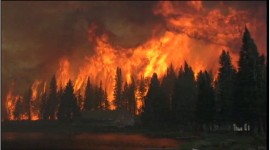
A Colorado fire chief faces extreme wildfires
Elk Creek Fire Chief Bill McLaughlin’s career has followed the spread of wildfires throughout the western United States. In 2012, his teams fought the Lower North Fork Fire in Colorado, an unusual early-season fire that kicked off the most destructive fire season in Colorado’s recorded history — until 2013 eclipsed that record. According to the […]
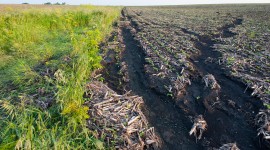
An Iowa Farmer Faces Weather Extremes
Iowa farmer Ray Gaesser doesn’t need a federal report to tell him the climate is changing. Climate changes already affect how, when, and what he plants, works his fields, buys machinery, and plans for the future. More extreme weather, including more very heavy precipitation events, have pushed Gaesser to adapt in creative ways. “You wonder […]
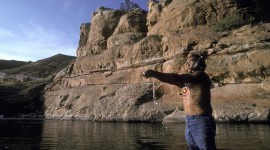
National Climate Assessment: Indigenous Peoples, Lands and Resources chapter
Indigenous communities already face many socio-economic challenges, even before overlaying climate change impacts on them, says T.M. Bull Bennett, a convening lead author on the National Climate Assessment’s Indigenous Peoples chapter. Climate change impacts will exacerbate these challenges, affecting native communities’ ability to hunt and gather traditional foods, perform ceremonies, even travel. Alaska Native communities […]
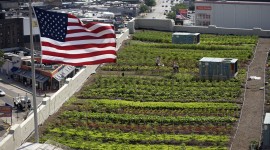
National Climate Assessment: Adaptation chapter
Preparing for and coping with the impacts of climate change is known as “adaptation,” and communities around the country are beginning to plan for a future climate that is different than the one humans have known for the past 10,000 years. Still, says Rosina Bierbaum, co-convening lead author on the Adaptation chapter of the National […]
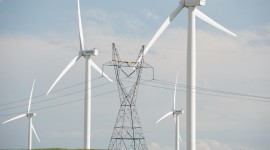
National Climate Assessment: Mitigation chapter
Climate change mitigation involves identifying ways to reduce heat trapping gas emissions, as well as finding ways to remove greenhouse gases from the atmosphere. Humans have many choices to reduce carbon dioxide and other emissions, and some local and state initiatives are showing some success. Still, says Tony Janetos, convening lead author of the National […]
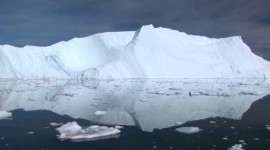
National Climate Assessment: Alaska chapter
“Things are happening now, and they’re not little things. They’re big things.” Sarah F. Trainor, a convening lead author for the National Climate Assessment’s Alaska chapter, talks about how Alaska has warmed twice as fast as the rest of the nation, bringing widespread impacts. Sea ice is rapidly receding and glaciers are shrinking. Thawing permafrost […]
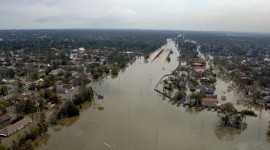
National Climate Assessment: Southeast chapter
The Southeast region faces three main climate change vulnerabilities: sea level rise and associated coastal impacts; increasing temperatures; and water availability. These impacts are already affecting everything from energy production to the economic cost of rebuilding after storms. “Climate change is not something in the future,” says Lynne Carter, convening lead author of the National […]
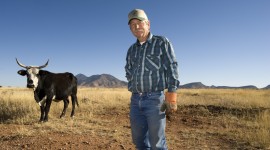
National Climate Assessment: Rural Communities chapter
The U.S. is still predominantly a rural country, even though most of its population lives in cities. Rural America supplies the rest of the country with food, fiber, energy, and many other benefits, and “climate change is hitting those rural areas in ways that will disrupt most of those relationships,” says David Hales, convening lead […]
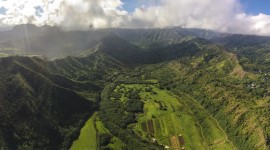
National Climate Assessment: Hawai‘i chapter
The Pacific Islands, including Hawai‘I, American Samoa, and parts of Micronesia, are home to many cultures whose lives depend on the ocean and how they interact with their environment. Climate changes that reduce the productivity of coral reefs and produce rising sea levels will have wide-reaching impacts. People from low-lying islands will likely migrate to […]
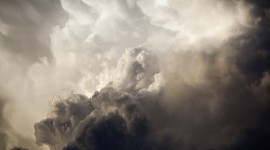
National Climate Assessment: Climate Science chapter
“It’s very clear to us that the climate is changing, changing rapidly, and changing primarily because of human activities,” says Don Wuebbles, a convening lead author on the National Climate Assessment’s Climate Science chapter. A wide range of scientific observations has shown that as the planet’s temperature has risen, there have been changes in precipitation […]
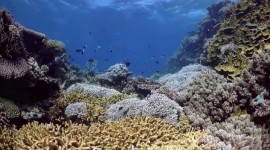
National Climate Assessment: Oceans chapter
“If the average temperature of a large body of water increases, that’s an enormous amount of heat content,” says Andrew Rosenberg, a convening lead author of the National Climate Assessment’s Oceans chapter. Ocean waters are becoming warmer and more acidic, broadly affecting ocean circulation, chemistry, ecosystems, and marine life. Rising sea surface temperatures have been […]
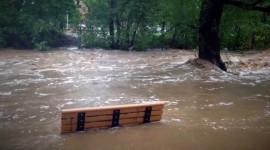
National Climate Assessment: Water chapter
“This is really a call for America to find out, ‘What does climate change mean for where you live?’” says Paul Fleming, a convening lead author of the National Climate Assessment’s Water Resources chapter. Fleming talks about how climate change will challenge the reliability of water supplies in the United States in multiple ways. Alterations […]
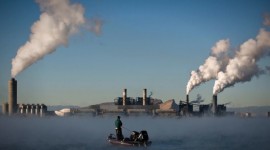
National Climate Assessment: Health chapter
“We have to start connecting the dots between climate change and human health,” says Kim Knowlton, a convening lead author of the National Climate Assessment’s Human Health chapter. Climate change threatens human health and well-being in many ways, including impacts from increased extreme weather events, wildfire, decreased air quality, and illnesses transmitted by food, water, […]
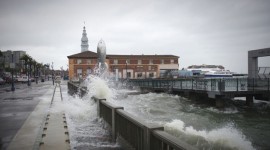
National Climate Assessment: Coasts chapter
“We are a coastal country,” says Susanne C. Moser, a convening lead author for the National Climate Assessment’s Coasts chapter, with 94,000 miles of coastline and more than $1 trillion in coastal infrastructure. Coastal lifelines, such as water and energy infrastructure, and nationally important assets, such as ports, tourism, and fishing sites, all are increasingly […]
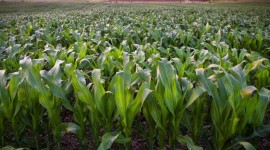
National Climate Assessment: Agriculture chapter
“This isn’t just about plants and animals. It’s about people, it’s about societies,” says Gene Takle, a convening lead author of the National Climate Assessment’s Agriculture chapter. Climate disruptions to agriculture have increased, and many regions will experience declines in crop and livestock production from increased stress due to weeds, diseases, insect pests, and other […]
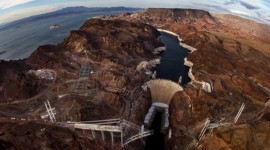
National Climate Assessment: Southwest chapter
“The story in the Southwest is the story of water.” National Climate Assessment Southwest chapter convening lead authors Gregg Garfin and Guido Franco discuss how climate change is affecting the Southwest, already one of the driest regions in the United States. Increased heat, drought, and insect outbreaks, all linked to climate change, have increased wildfires. […]
